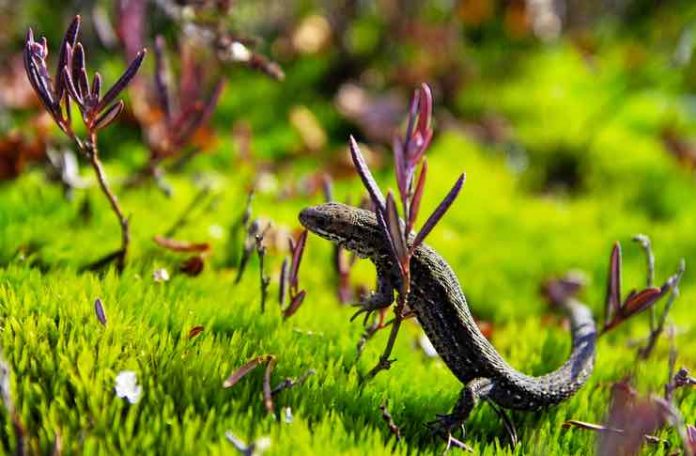Your garden is a place for plants and pretty flowers to grow, and a way for you to destress.
Depending on where you live, it can also be a sanctuary for reptiles, who can in turn help keep your garden safe.
Reptiles like snakes and lizards eat common garden pests. Lizards and snakes come in all shapes and sizes, with over 6,000 species of lizards and more than 3,000 species of snakes in the world.
However, not all of them are beneficial to your small ecosystem, and knowing which ones aren’t is essential when these animals live in your area.
The following is everything you need to know about reptiles and how to attract the good ones to your garden.
Reptile-Friendly Gardens
As previously mentioned, lizards and snakes take care of harmful insects, such as slugs, and pesky animals, like rodents.
More importantly, the presence of these reptiles serves as a barometer of environmental health. These scaly animals are susceptible to pollutants, so their existence in your garden shows that there are low levels of heavy metals and pesticides.
If you’re growing herbs or food, this also ensures that the low levels of these particles.
How to Attract Reptiles to the Garden
For lizards and snakes to make a home in your yard, they need an adequate habitat. It’s essential for you to create the correct environment for your garden to be truly reptile-friendly.
Take the initiative to learn what species are native to your area. Research where they’re likely to lay their eggs, what they prefer to eat, and what environmental elements make them content.
The following are some tips to help gardeners make their space a safe haven for a variety of reptiles:
- Avoid chemicals. Pesticides often do more harm than they do good. Instead, you should use natural methods to eliminate pests. Methods such as companion planting, insecticidal soaps, and the introduction of natural predators are great ways to create a safe garden.
- Avoid using a weed killer. Similar to pesticides, the chemicals in weed killer can be harmful, especially if used on the entire lawn. If you’re having weed problems, spot-treat the issue instead of going with a wide-spread application across the yard. To create a healthier lawn, try thatching, reseeding, and mowing at the recommended levels to naturally deter the growth of weeds. You can also get rid of weeds by simply hoeing or pulling by hand.
- Mulch the garden. Mulch is great for your garden. It retains moisture, creating a humid environment that reptiles enjoy, and deters weeds. Organic mulch also contributes to soil health when it breaks down over time.
- Give the reptiles hiding places. Lizards are low on the food chain. While snakes are higher up, they still have predators. Providing protection in the form of bushy perennials, rocks, or brush piles ensures and invites their existence.
- Include sunning areas for lizards. Stone walls, large rocks, and concrete blocks retain the heat from the sun which is perfect for cold-blooded species to stay warm during cool nights.
- Fence in the garden. Fencing in the garden protects not only your plants from big mammal predators but also your reptiles. A trusted deer fencing company suggests gardeners install fences like their own. A high-quality deer fence protects your yard from large animals and is invisible at a distance.
- Provide water. Install a water feature, such as a small bowl or even a pond. Be sure to include sticks and rocks near the edge to create a ramp for them to access the water.
Avoid:
- Feeding your pets outdoors. Reptiles can be attracted to food in your pet’s bowl. Feeding your pets indoors ensures that they’re safe from domestic pets. It also ensures that your pets are safe from snake bites.
- Collecting lizards from the park. Don’t gather reptiles from shared outdoor places. These animals will be attracted to your garden just from you simply providing them with habitat.
- Raking up. Raking up takes away from your reptiles’ home. They will love you for letting your twigs, mulch, and leaf litter pile up.
- Feeding them. These reptiles are great at finding their own food. If you feed them, they may become dependent on it, which can quickly endanger them if you go away on vacation or move houses.
Wrap-Up
With a little effort, you can ensure your garden flourishes while still being friendly to reptiles. Do what’s best for your yard by fostering an environment that’s friendly to lizards and snakes.



